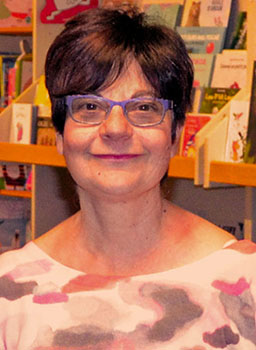
Alice Herscovitch
Alice Herscovitch first became Executive Director of the Montreal Holocaust Memorial Centre in 2007, and it didn’t take long for her realize the incredible untapped resource that was the MHMC’s collection of 550 Holocaust survivor testimonies.
“I knew we had an extraordinary collection, but for what?” Herscovitch recalled. “Why did we record these if we’re not going to do something with them?”
Seven and a half years later, MHMC, along with the Sarah and Chaim Neuberger Holocaust Education Centre of Toronto have taken a major step forward in providing access to their collections as well as other Canadian testimony collections by partnering with USC Shoah Foundation’s Preserving the Legacy initiative. Under this partnership, Canadian testimonies are being integrated, cataloged and indexed into the Visual History Archive.
After World War II, Montreal became a home to many Holocaust survivors – about 9,000 immigrated there, Herscovitch said. MHMC volunteers began conducting testimonies in a small studio at the Centre in 1989, which, like the testimonies in the Visual History Archive, covered the survivors’ lives before, during and after the war. Herscovitch said survivors’ tales of settling in Canada are especially important to share, since they show how Canadian society evolved after the war and also how Jews were able to thrive in their new home.
“Canada was not an open and welcoming country during the Holocaust. It because much more [welcoming to Jews] after the war,” Herscovitch said. “People made their homes and rebuilt their lives and developed a real sense of community.”
Though the MHMC has digitized and cataloged much of the collection, it has only recently begun to share short clips of its testimonies with a wider audience, through its pedagogical materials and YouTube channel. The Centre also integrated smaller testimony collections from Montreal, and along with the SCNHEC, is bringing together other Canadian collections– many of which are not digitized or cataloged in any way but have been sitting in boxes in an office or warehouse. Others were recorded in formats that are no longer even accessible. Herscovitch and her colleagues knew the time was right to preserve and share these testimonies with the general public through an institution like USC Shoah Foundation. Both the MHMC and the SCNHEC appreciate greatly the Government of Canada and private support which has made this possible, Herscovitch said.
Survivors whom Herscovitch interacts with in Montreal have become much more comfortable over the years with the idea of their testimonies being made public. They may not be able to predict how they will be used because technology is evolving so fast, but Herscovitch knows they want their stories to combat Holocaust denial and anti-Semitism and teach other important lessons to students and people around the world.
“I think the survivors recorded these testimonies at great cost to themselves and with great purpose,” she said. “People who have done this want their stories to be told.”
Not only do the testimonies illustrate the consequences of hate, intolerance and abuse of power, but they also display the strength of the human spirit. Herscovitch is especially proud of the ways in which survivor testimony demonstrates the human capacity to rebuild after tragedy and to remember murdered family members, and how it can assist other communities dealing with the aftermath of genocide. Preserved in the Visual History Archive and utilized in education programs such as IWitness, future generations will be able to experience these powerful stories for themselves.
“These are things that are important, human life lessons,” Herscovitch said. “That’s why we’re really thrilled they’ll be part of USC Shoah Foundation and we’ll have that kind of impact and outreach.”